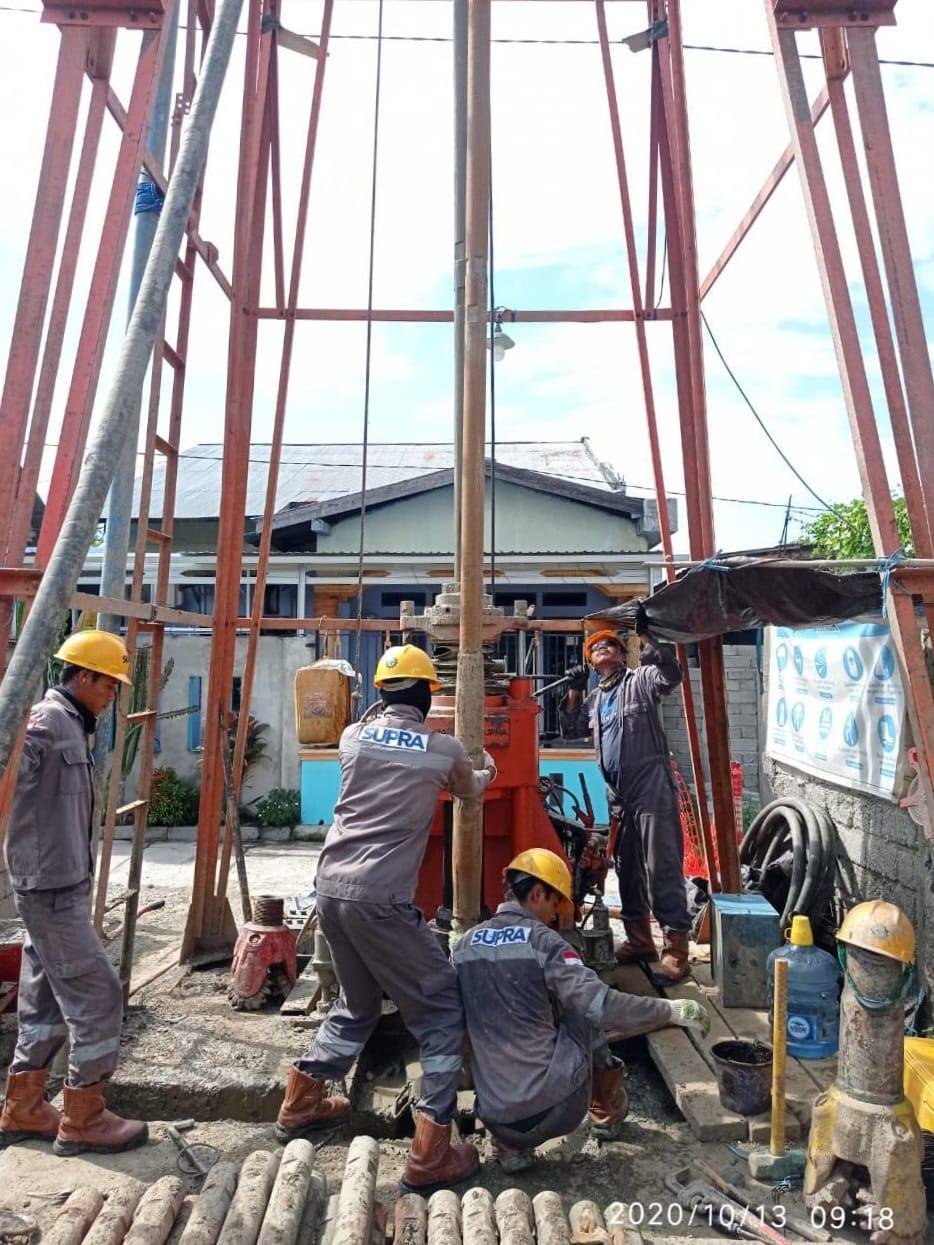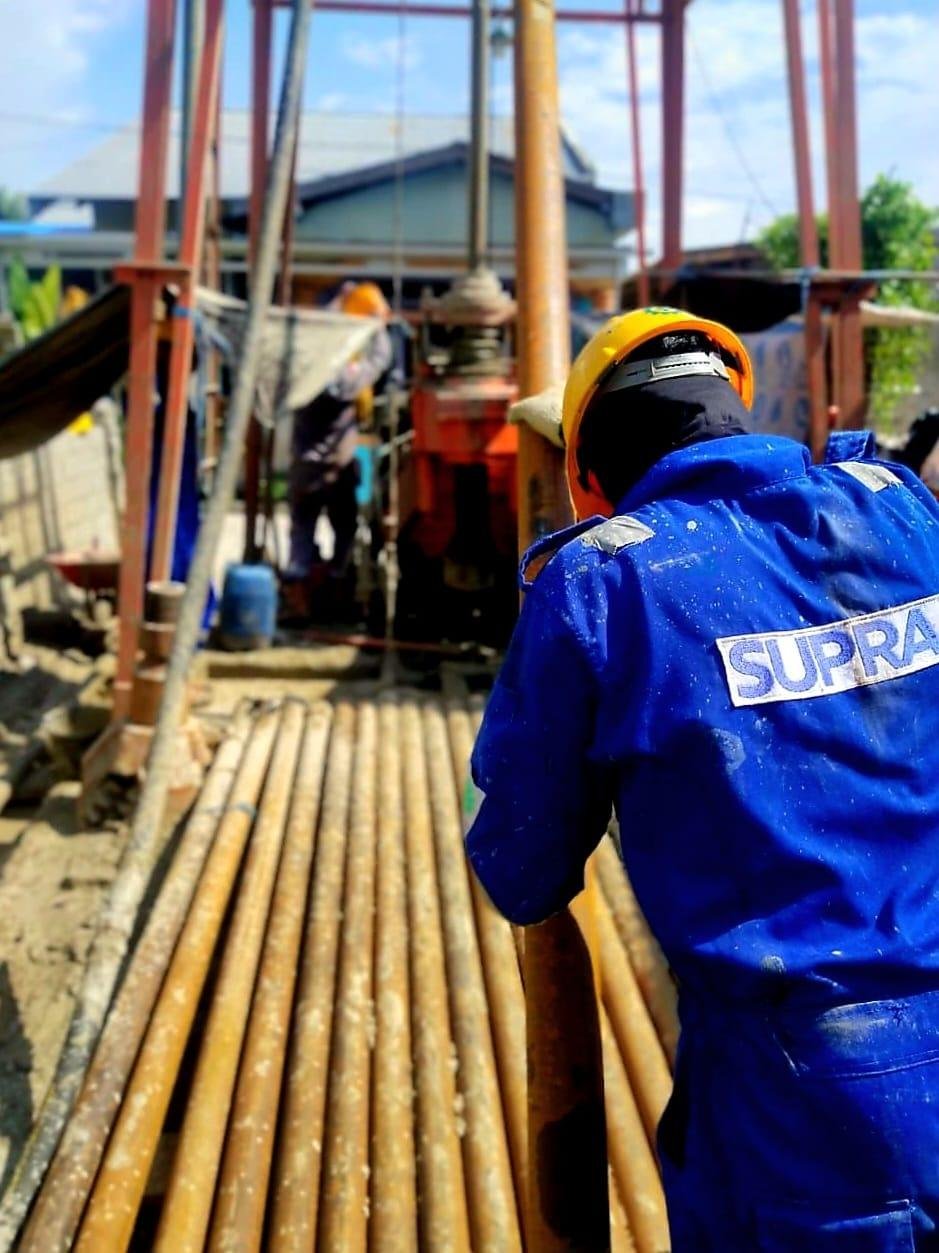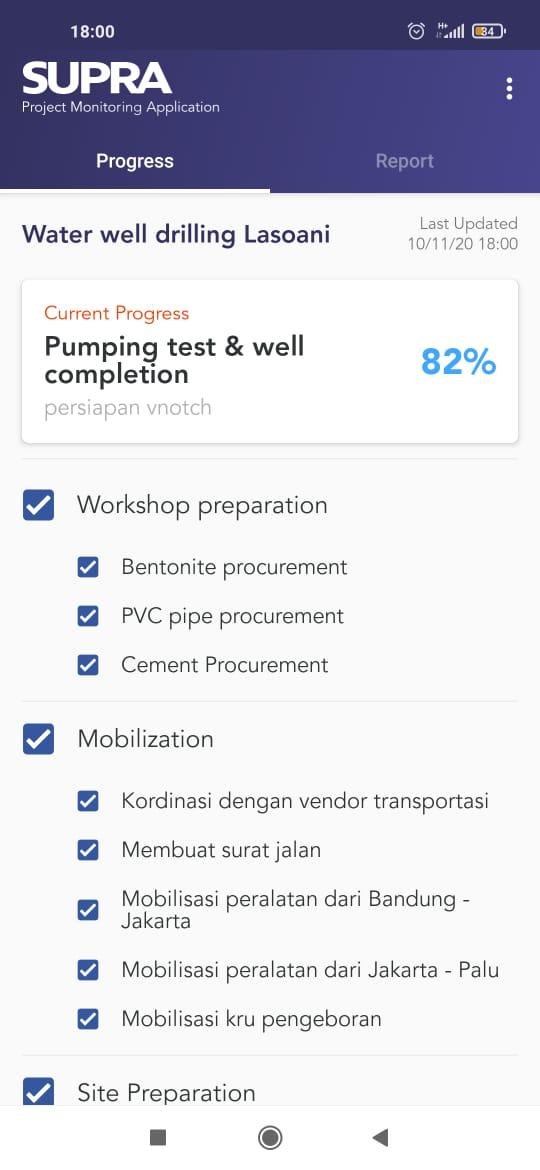
Groundwater Well for Post-Tsunami Water Recovery in Central Sulawesi
Grant Project for Post-Tsunami Recovery in Palu, part of OXFAM’s Global Humanitarian Grant
Project Context
OXFAM International, supported by global philanthropic funding, developed a recovery program focused on restoring water access in Palu. The program emphasized long-term solutions to reduce dependency on temporary measures. SUPRA Internasional Indonesia was assigned to implement deep well drilling in coordination with OXFAM UK, OXFAM Indonesia, PDAM Kota Palu, and the local government.
.jpeg)
Background
After the tsunami, shallow aquifers could not be used due to high risks of contamination and saltwater intrusion. Short-term measures such as trucking water into the city could not provide a sustainable supply. The alternative was to drill deep groundwater wells that could access aquifers located more than 100 meters below the surface. These deeper aquifers were less exposed to contamination and could serve as reliable sources for the city.
SUPRA was originally tasked with four well points. Due to administrative issues and delays in coordination with government authorities, only two wells were completed in 2020. Both wells were then handed over to PDAM Kota Palu for long-term operation and maintenance.

Challenges
- Geological changes caused by the disaster increased the risk of saline water intrusion and unstable soil layers.
- Shallow aquifers were unsafe, requiring proper casing and sealing to prevent contamination.
- Multiple approvals and coordination were required with international and local stakeholders.
- Local residents were concerned about the safety of groundwater after the disaster.

Technical Approach: Well Design after a Disaster
Wells constructed in a post-disaster environment require additional safeguards to ensure water quality and system durability. SUPRA applied several technical measures to reduce contamination risks and secure long-term performance.
.jpeg)
Technical Measures
- Depth: Wells were drilled beyond 100 meters to reach aquifers less influenced by surface contamination.
- Casing and sealing: Upper aquifer layers were isolated with casing and grouting to prevent polluted water from seeping into the well.
- Wellhead protection: Wellheads were built with elevated platforms and sealed structures to protect against surface runoff and potential flooding.
- Development and testing: Controlled pump tests were carried out to confirm water yield, aquifer stability, and quality.
- Water quality checks: Samples were tested during and after drilling to ensure the absence of contamination
Importance of Well Design
- Prevents shallow contaminated water from entering deep aquifers.
- Ensures long-term reliability of the wells even in disaster-prone environments.
- Reduces public health risks related to waterborne diseases.
- Provides infrastructure that can be managed effectively by PDAM as part of the municipal system.
.jpeg)
Stakeholder Engagement
The project required structured communication and coordination. SUPRA held regular meetings with OXFAM UK through online platforms to provide updates to international donors. Local collaboration involved PDAM Kota Palu and municipal officials for operational integration. Community meetings were organized to explain the design approach and water safety, which helped increase public confidence.
.jpeg)
Significance of the Project
The project restored access to clean water for thousands of residents in Palu. It contributed to the recovery process after the disaster and provided infrastructure designed to remain safe for long-term use. It also supported public health by supplying uncontaminated groundwater and built local capacity through PDAM management.
Key Facts
- Execution Partner: PT SUPRA Internasional Indonesia
- Location: Palu, Sulawesi, Indonesia
- Year: 2020
- Scope: 4 wells planned, 2 wells completed at depths greater than 100 meters
- Design Features: Multi-casing, sealing of shallow aquifers, elevated wellheads
- Outcome: Two functioning wells supplying clean water to local communities grant for PDAM Palu
Strategic Significance
The project provided essential infrastructure in a post-disaster environment for people in Palu. It applied technical standards that minimized risks of contamination and secured reliable water sources. The wells remain operational under PDAM Palu management and continue to serve the population of Palu.
Share:
If you face challenges in water, waste, or energy, whether it is system reliability, regulatory compliance, efficiency, or cost control, SUPRA is here to support you. When you connect with us, our experts will have a detailed discussion to understand your specific needs and determine which phase of the full-lifecycle delivery model fits your project best.


